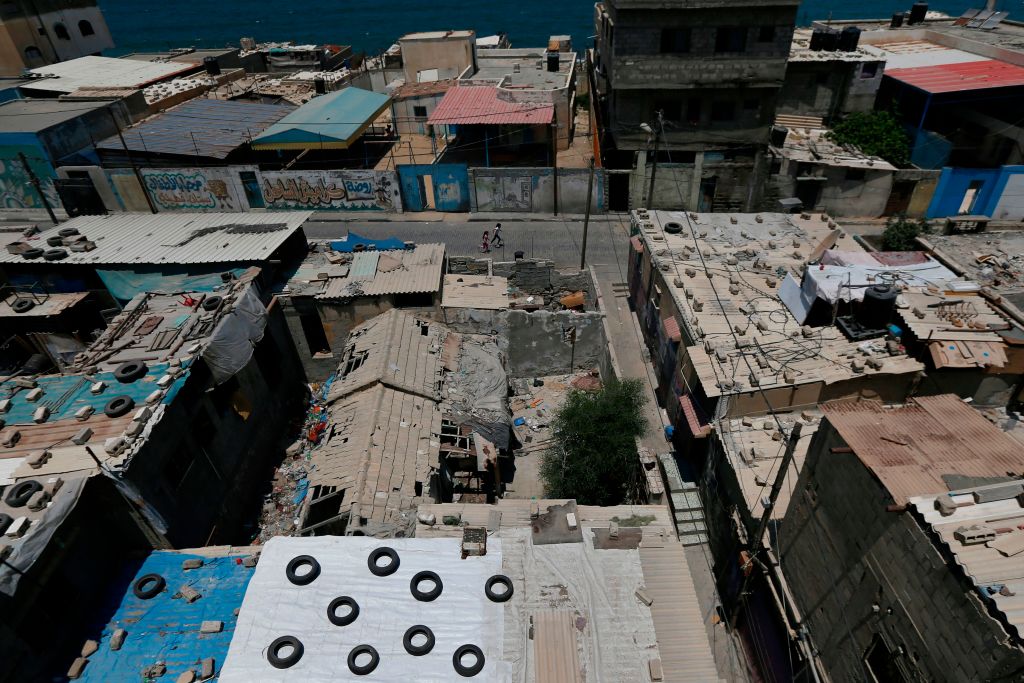
Palestinians on Sunday rejected the White House’s $50 billion economic proposal meant to boost the Palestinian and Arab economies, calling it a “snow job.”
Their objection came as no surprise. Palestinian business organizations and officials have declined the U.S. invitation to attend the Bahrain conference this week meant to promote their development, saying any economic proposal must come as part of a political agreement and not separately or ahead of it.
Mounir el-Jagoub, information officer for Palestinian President Mahmoud Abbas’s Fatah party, said the plan was based on using Arab money “to kill the political aspirations of the Palestinian people.” Abbas didn’t even respond to the plan directly in a speech to the Fatah Central Committee on Saturday after the proposal was released in Washington.
The 40-page U.S. proposal includes the creation of a global investment fund that the U.S. hopes will lift Palestinian and neighboring Arab state economies. More than half of the $50 billion would be spent in Palestinian territories.
“This is a nice snow job,” said Sam Bahour, a Ramallah-based Palestinian-American business consultant and chair of the board of Americans for a Vibrant Palestinian Economy. “Go home,” he advised President Donald Trump’s son-in-law Jared Kushner.“You’re wasting time and taxpayers’ dollars trying to whitewash 52 years of military occupation.”
The Palestinian economy is suffering in part because the Trump administration halted hundreds of millions of dollars of funding, making it hard for the government to pay salaries. Israel also withheld about $11 million in taxes, roughly 5% of the amount it collects on behalf of the Palestinians, prompting the Authority to reject the remaining 95 percent that it was due. Israel said its move was to offset stipends paid to families of Palestinians who killed Israelis or are held in Israeli jails on security-related charges.
Azzam Shawwa, head of the Palestine Monetary Authority, said economic growth slowed to 0.8% last year from 3.3% in 2017, and he expects this year “to be a big mess” after the funding was halted. The Secretary-General of the Arab League, Ahmed Aboul Gheit, said on Sunday that the Palestinian budget deficit had reached $700 million and had the League reconfirm providing the Authority with a monthly safety net of $100 million.
Palestinians view the U.S. plan with suspicion, said Kamel Husseini, an adviser to the Palestinian private sector, because it comes before and not in conjunction with a political plan that would culminate in statehood. What he called “dubious” measures by the U.S. have also undermined confidence, he said.
Since Trump took office, he has walked back the longstanding U.S. commitment to Palestinian statehood, recognized Jerusalem as Israel’s capital, closed the Palestine Liberation Organization’s diplomatic mission in Washington as well as halted the aid.
Neither Israel nor the Palestinians will be at the conference this week. Kushner will lead the U.S. delegation and officials from Saudi Arabia, United Arab Emirates, Qatar and Bahrain will attend.
Some Israelis expressed doubt about the summit. “I don’t see any chance that the conference will bring a solution,” former head of military intelligence Aharon Ze’evi Farkash told Kan News.
More Must-Reads From TIME
- The 100 Most Influential People of 2024
- The Revolution of Yulia Navalnaya
- 6 Compliments That Land Every Time
- What's the Deal With the Bitcoin Halving?
- If You're Dating Right Now , You're Brave: Column
- The AI That Could Heal a Divided Internet
- Fallout Is a Brilliant Model for the Future of Video Game Adaptations
- Want Weekly Recs on What to Watch, Read, and More? Sign Up for Worth Your Time
Contact us at letters@time.com